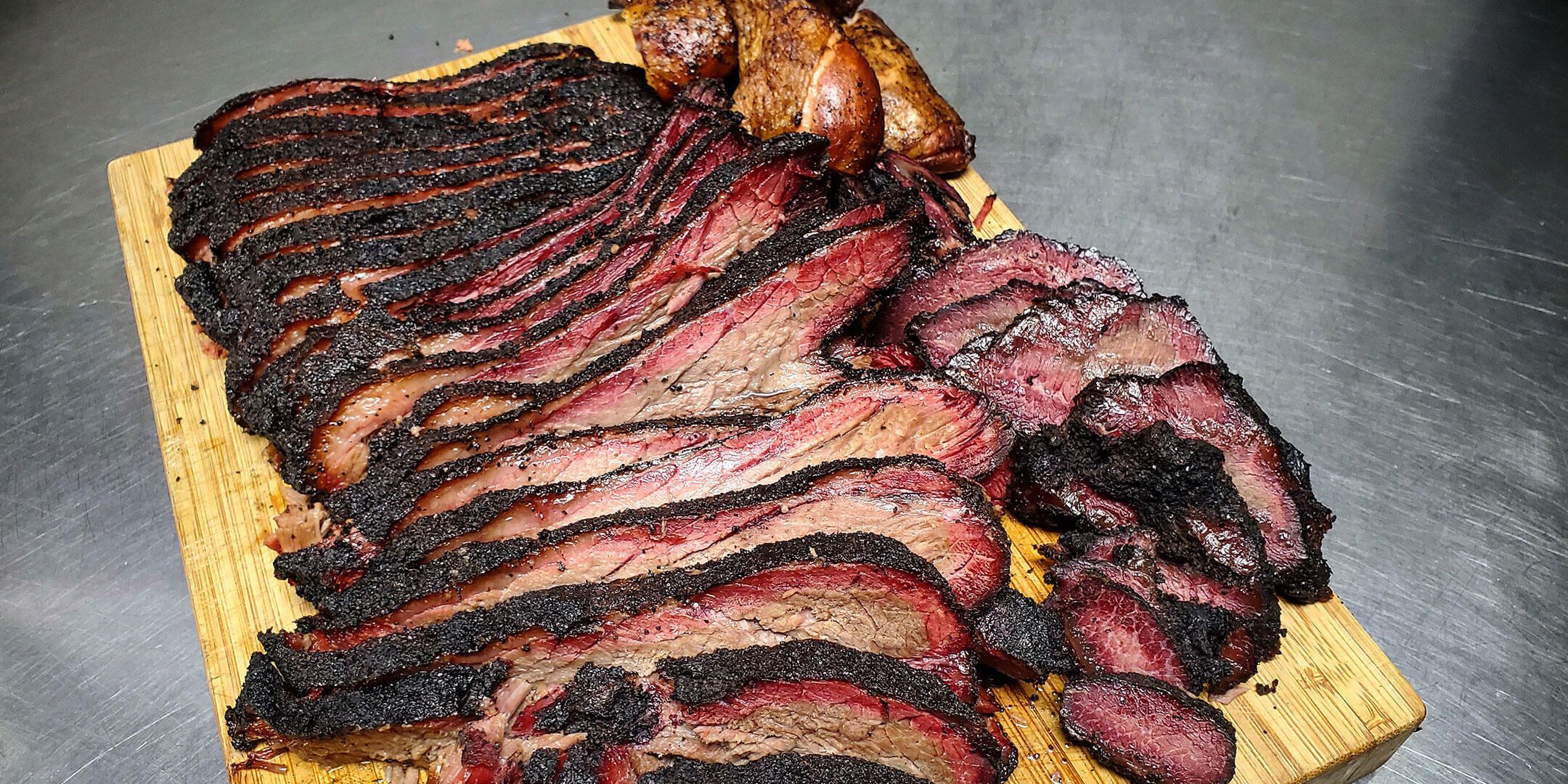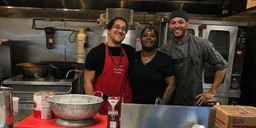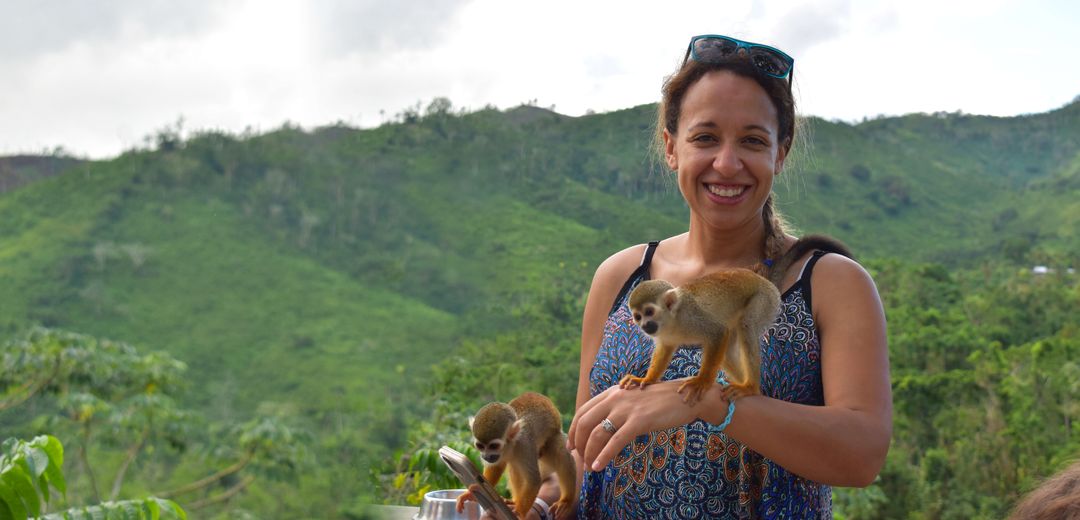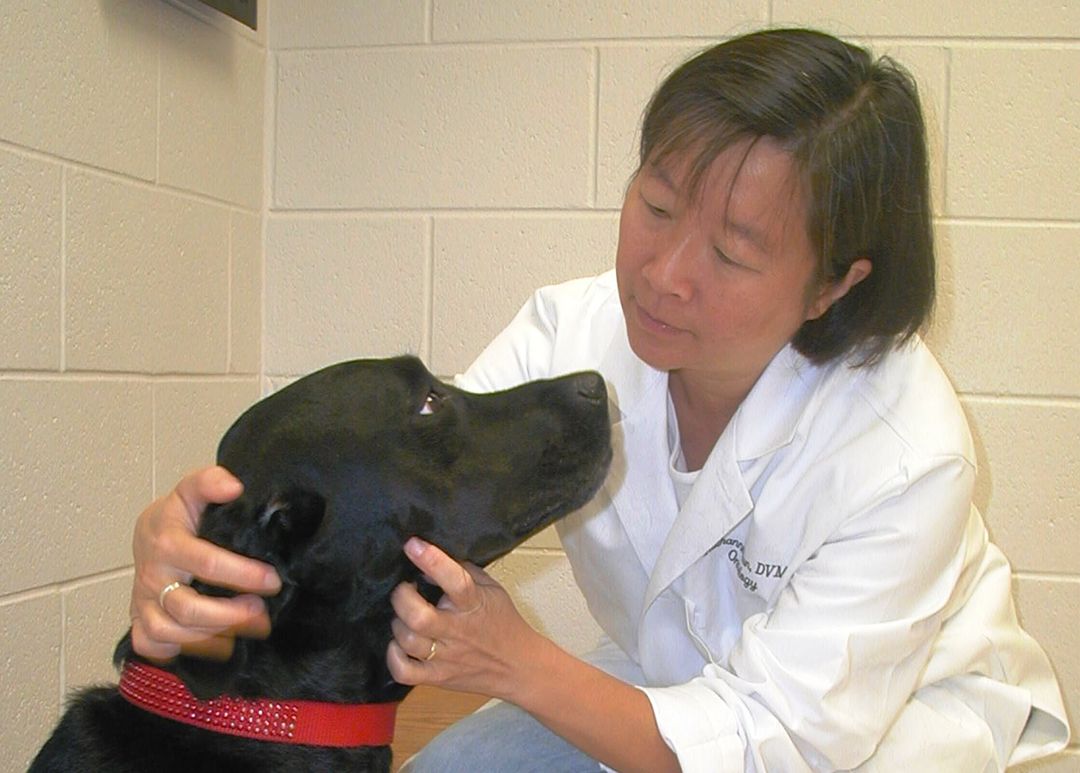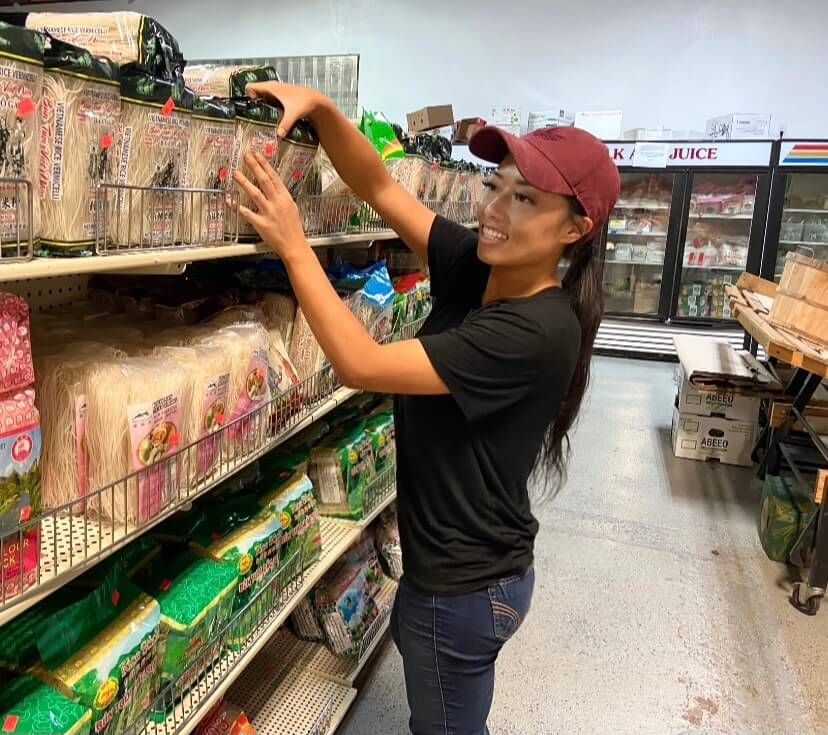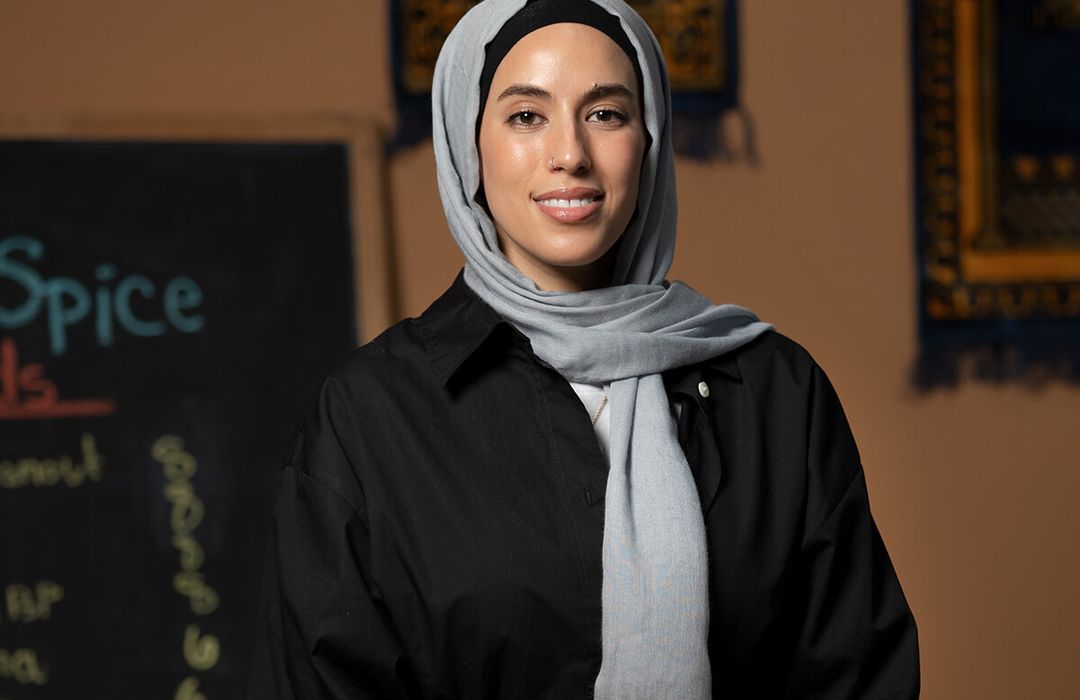“Extensive food preparation is not allowed in resident rooms for sanitation and fire safety reasons,” reads the UW Housing policy. “These restrictions are strictly enforced for the protection of all our residents.” But what’s the odd charcoal grill? For Devon Hamilton ’17, his contraband Char-Broil — hidden under a pile of clothes in his Cole Hall closet — was a lifeline.
Hamilton was born and raised in Los Angeles’s Leimert Park neighborhood, “one of the more Afrocentric neighborhoods in LA,” as he describes it — “one of the last of the few, nowadays.” Coming to Wisconsin for college meant a host of culture shocks, but he found comfort with his cohort of Posse scholars. Posse is a scholarship program that brings students to the UW in groups, or posses. Each posse is a collection of 10 students of the same age from the same city, who can support each other through their UW experience. “I always had a little bit of LA with me,” Hamilton says. Sure, his group of friends enjoyed Madison’s party scene, “but as kids from LA, like, we kick back,” he says. “We take it easy. Where was that kind of vibe?” Not finding it, Hamilton and his friends created their own gathering space.
Hamilton started toting his grill — over his shoulder, by bicycle — to different hangout spots across campus. Over time, the small gatherings grew in both size and purpose. By his junior year, he recalls having upwards of 70 folks in his backyard. Without knowing it, he’d filled a gap and built a space for community. Hamilton’s take-it-easy, kick-back cookouts had become a place to gather, to unpack, and to organize. “Over time, some folks in my posse coined the term grillin’ for the people,” and it stuck. The phrase, plus the model of a community-centered space for resilience and resistance, turned into Hamilton’s barbecue business — Grillin’ 4 the People — which he operates out of his home neighborhood of Leimert Park.
He carries with him the lessons he learned and relationships he forged while in Madison, particularly the work of Professor Monica White, an associate professor of community and environmental sociology.
“Monica absolutely is responsible for how I frame all of my work,” Hamilton says. White (whom you can read more about in the next section) helped give Hamilton the verbiage and grounding perspectives that ultimately helped boost his career and refine the core of his work with Grillin’ 4 the People — serving up delicious barbecue with a side of social justice. Inspired by flavors of the African diaspora and traditional Southern Black recipes, Hamilton has used his kitchen to gain a deeper understanding of Black people's relationship and deep history with land and food.
In 2019, he saw these histories in action on a trip to Benin and Togo, organized by Roots to Glory. “My initial understanding of what a farmer was was just a white guy in the middle of the Midwest with a tractor growing corn. No, it’s so much more than that,” says Hamilton. In addition to White, Hamilton also found mentorship and inspiration from Black food-justice advocates and culinary experts, including Michael Twitty, Edna Lewis, Adrian Miller, Madison’s own Candy Flowers and Robert Pierce.
But back when he was hiding a grill in a dorm-room closet, did Hamilton know that his future — and his food — would build justice, community, and resilience? He didn’t really see it that way. “There’s so much that we do as folks of color that we just do,” he says. “The kitchen space and the cooking space was always a space of healing. That’s always something that I kind of knew, [but] I didn’t ever have the terminology or that deeper understanding to call it that. … It’s kind of what’s always just been done [to] survive being Black in America.”
Grillin’ 4 the People Smoked Brisket
- Trim the fat heavily around the point and flat of your brisket, leaving an approximately ¼- to ½-inch fat cap on the flat.
- Dry brine your brisket for 24 hours, or at least overnight.
- Make your rub: four parts black pepper, one part garlic, one part onion, one part paprika, and enough salt to barely taste it in the rub.
- After the meat has brined, apply your rub thoroughly by firmly patting (not rubbing) it in. Get it into every crevice, and reapply two or three times.
- Get your smoker to 225 degrees Fahrenheit, and place your water tray near the heat. Lay your brisket fat side up, with the bulkiest sections of the meat facing the heat. Add smoke to the fire steadily for only the next three or four hours, and thoroughly spritz the meat with water every hour or so.
- If you have a smoker that holds in heat and moisture very well, you can continue cooking the brisket uncovered. If not, tightly wrap the meat in one or two layers of butcher’s or parchment paper. Cook for another four to nine hours. Your total cook time should be eight to 12 hours or longer, depending on the weight and “personality” of your brisket. Your ideal internal temperature should be around 202 degrees.
- Let the brisket rest uncovered for 30 minutes to one hour. Slice against the grain, and serve!
Devon Hamilton’s Pro Tips
- Use only real wood or lump charcoal for your heat.
- Use a two-to-one mix of intense and mild woods for beef (oak and apple, pecan and peach, etc.). I like wood chunks versus chips.
- Billowing dark smoke is not ideal for barbecue; aim for thin blue smoke.
- A brisket’s point is typically better marbled than the flat, so you can trim much more fat off of the point.
- For your dry brine, search online for how much salt you should use for the weight of your brisket. A little salt goes a long way, and eventually you’ll get a feel for it.
- Get to know your smoker well: how does the heat move, how much heat does the smoker hold, how do you control your heat and smoke, how do you control moisture, etc. In barbecue, your relationship with your rig and other equipment is just as important as the quality, care, and effort you put into preparing your foods.
This story originally appeared in the May 2021 issue of Badger Vibes. Learn more about this monthly email newsletter from WAA, and sign up for the mailing list.
